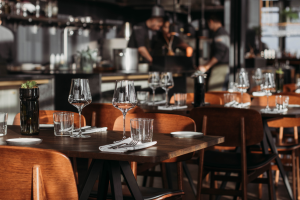Your questions don’t apply only to a restaurant, but to any kosher factory, facility or kitchen. It is beyond the scope of this column to describe all the laws of kosher, specifically those which apply to a business or public situation, as the laws are vast and take years to master.
Besides the food itself being kosher, it is necessary for a food establishment to have a mashgiach or overseer of the kashrut of the operation. This person needs to be a Jewish man or woman who is well-versed and personally observant of the laws of kosher. This mashgiach has the job of being sure no mistakes are made as to the laws of kosher, and in some cases, such as when the owner or workers are not Jewish, to be sure no non-kosher products are brought in with or without intention.
The amount of time and the job of the mashgiach varies from establishment to establishment. Certain types of restaurants may need a mashgiach the entire time it is open, or before it opens and cooking is being done. Others may need less time, depending on the complexity and the nature of the operation.
A kosher restaurant can be owned by Jew and non-Jew alike, and need not employ any Jews to be kosher, besides the mashgiach (who can, at times, also double as a cook or other jobs).
The hechsher, which is a sign describing the extent of the kashrut of an establishment and signed by the Vaad, or kosher observatory organization, should be prominently displayed in that place of business. In some cases it may warn the potential customer of some items which are not kosher in that place.
(A rabbi was appalled to walk by a non-kosher restaurant and see his synagogue president consuming a meal inside. He approached the man the following Shabbat, and asked him what came over him. The president asked the rabbi if he saw him walk in; the answer was yes. “Did you see me sit down and order?” “Yes.” “Did you see me be served and eat the meal?” “Yes.” “If so, what’s the problem? It was all under rabbinical supervision!”)
Sincerely,
Rabbi Yerachmiel Fried



